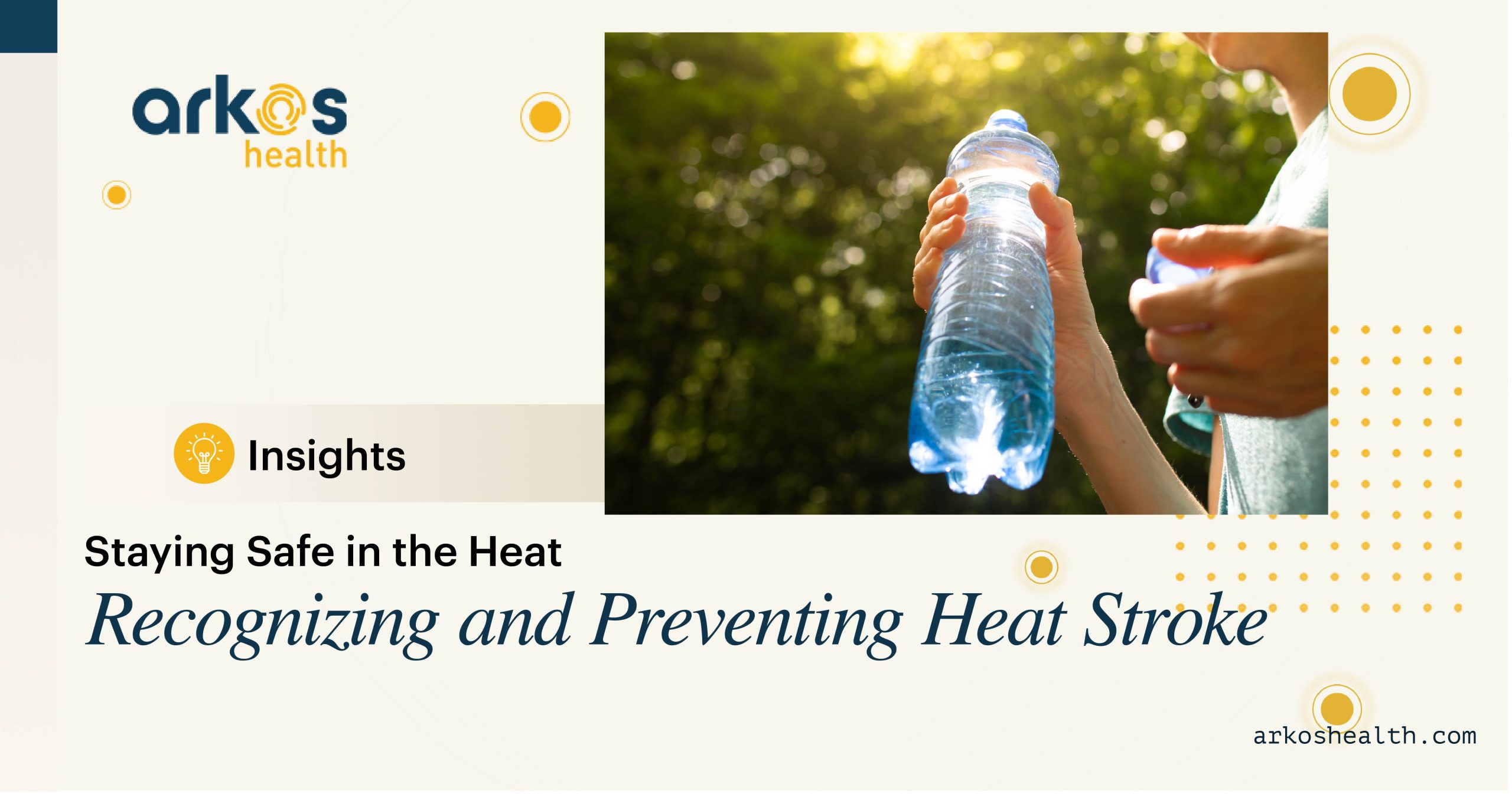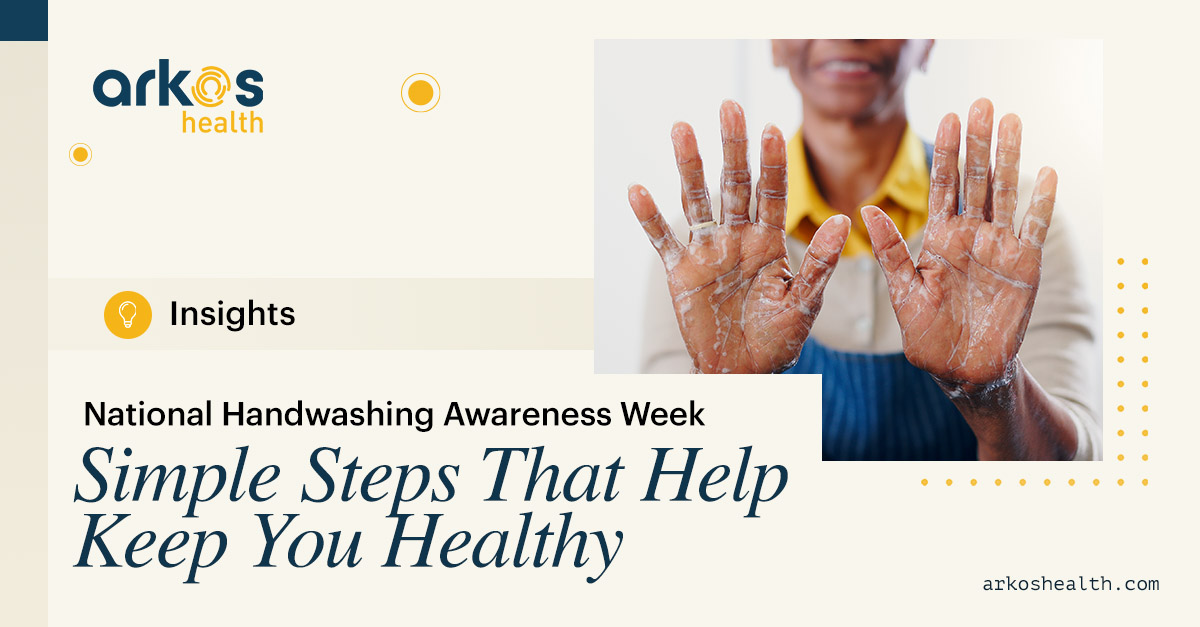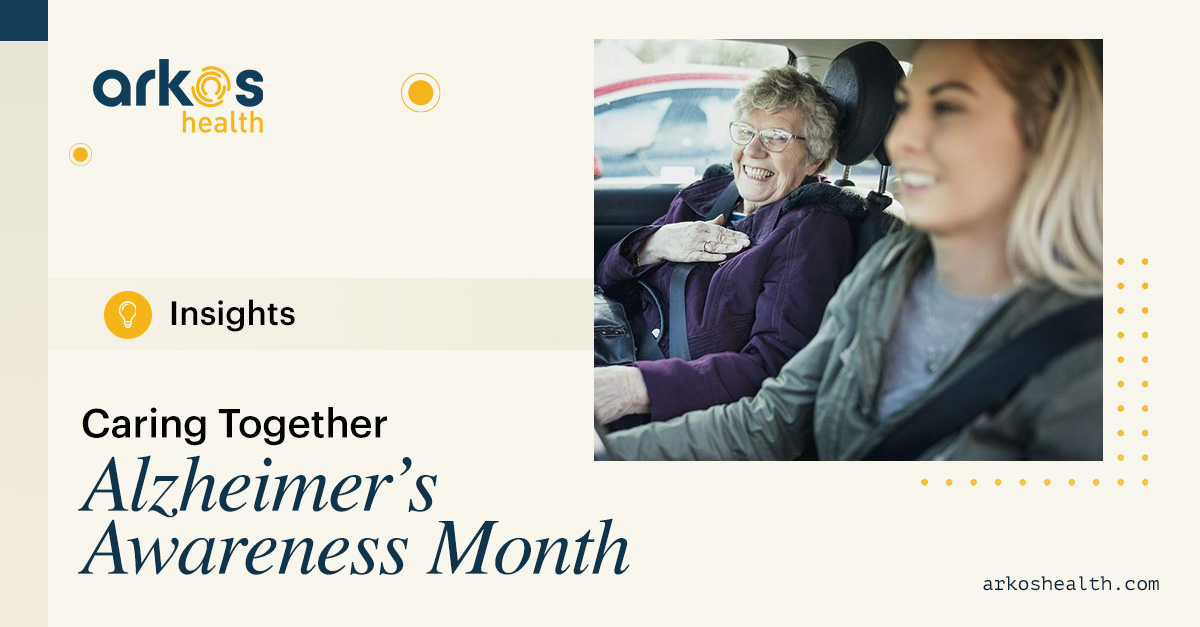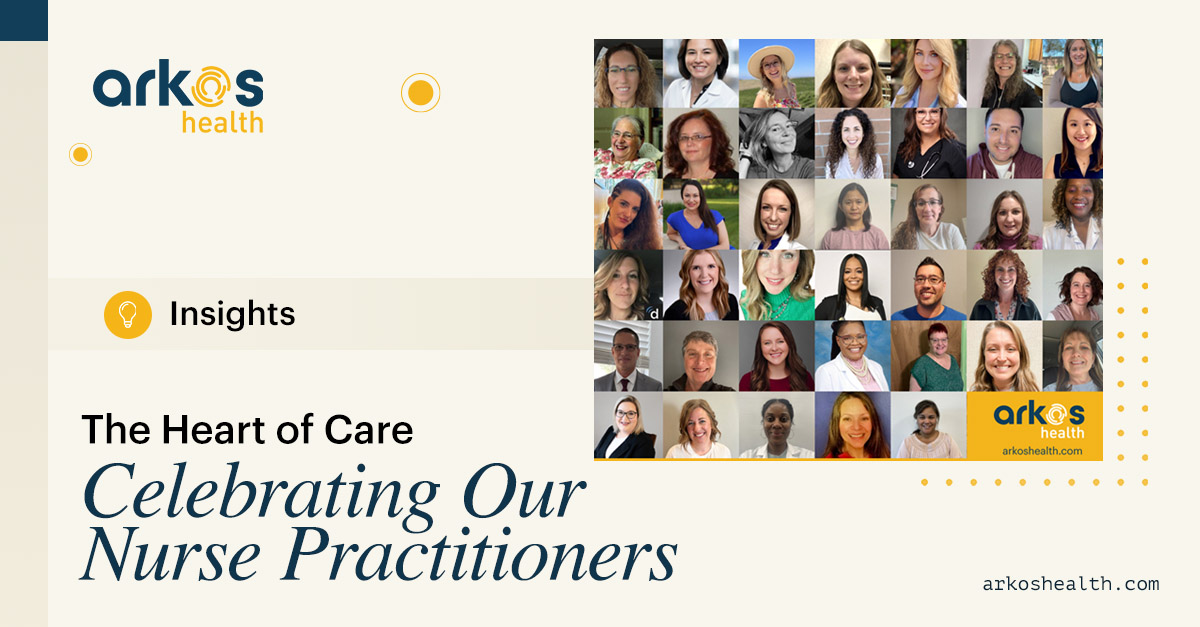
Heat stroke is a serious, life-threatening condition that happens when the body overheats due to
prolonged exposure to high temperatures or physical exertion in hot weather. It can affect
anyone, but older adults, young children, and those with chronic conditions like diabetes or
heart disease at especially at risk.
Warning Signs of Heat Stroke Include:
- Dizziness or confusion
- Nausea or vomiting
- Rapid heartbeat
- Hot, dry skin (or excessive sweating in earlier stages)
- Fainting, seizures, or loss of consciousness in severe cases
Without quick treatment, heat stroke can lead to lasting complications such as organ damage,
impacting the kidneys, liver, or brain. As well as long-term effects, such as impaired muscle
coordination or memory issues.
Arkos Health encourages you to take the following precautions, especially in the hottest months
to stay safe:
- Stay Hydrated: Drink water or electrolyte-rich drinks regularly. Avoid caffeine or alcohol, which can lead to dehydration.
- Dress Smart: Wear lightweight, light-colored, and loose-fitting clothing. Apply SPF 30 or higher sunscreen to avoid sunburn.
- Limit Heat Exposure: Avoid outdoor activities between 10 a.m. and 4 p.m., when temperatures are highest. Seek air-conditioned spaces.
- Monitor Vulnerable Loved Ones: Keep an eye on older adults, young children, and others at high risk, especially those who may live alone or in urban areas.
- Never Leave Anyone in Cars: Temperatures inside a parked vehicles can reach over 120°F within minutes, putting children and pets at extreme risk.
We’re Here to Help:
Arkos Health is committed to helping you stay healthy and safe. Through our video visits, you can quickly connect with a provider to assess symptoms and get guidance when it matters most. Our care management team provides ongoing support for those who need it most, including help navigating health challenges that may happen during extreme weather.
If you expect heat stroke, call 911 immediately. While waiting for help, move to a cooler location and apply cool cloths or ice packs to the neck, armpits, or groin.
BY Arkos Insights
Published June 25, 2025 11:02PM


